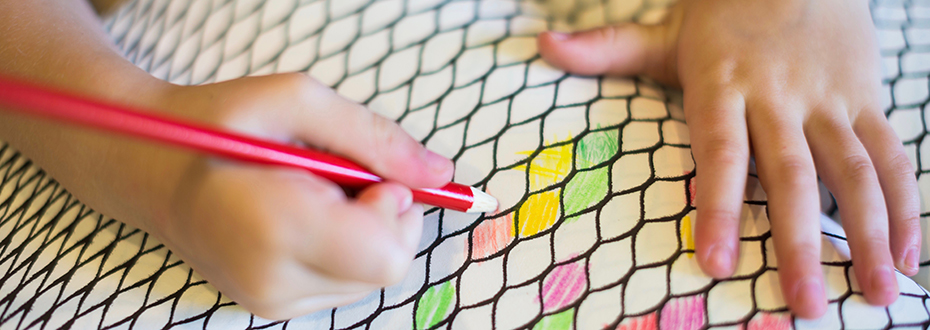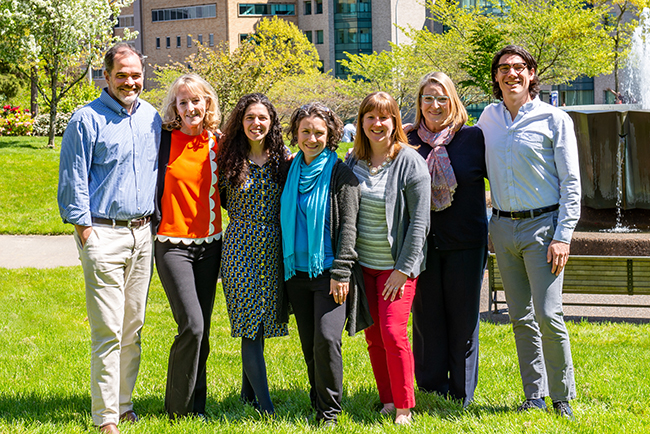Bridges Program (Pediatric Palliative Care)

If your child has a serious or life-changing condition, the Bridges team at OHSU Doernbecher Children’s Hospital can help. We work with your child’s treatment team to meet your child and family’s physical, emotional, social and spiritual needs.
The Bridges Pediatric Palliative Care Program team can:
- Work to relieve pain and other symptoms.
- Coordinate services to help your child live as fully as possible, in the hospital and after.
- Help your family make difficult decisions.
- Improve communication between your family and providers.
- Provide counseling and other support services.
- Provide bereavement support.
Understanding palliative care and hospice care
Palliative care and hospice care are not the same thing. Palliative care is appropriate for any patient with a severe condition and uncertain future. Hospice care is a specific type of palliative care for patients in the last six months of life.
Palliative care
Palliative care focuses on living as fully as possible. That’s why the American Academy of Pediatrics says the goal is to “add life to the child’s years, not simply years to the child’s life.”
When can it start? Palliative care can start at the time of diagnosis.
Services: Support for your child and family includes:
- Working to relieve pain or suffering.
- Guiding families through complex decisions.
- Providing emotional and spiritual support.
- Making sure your values and preferences play a part in conversations about care.
Philosophy: We share in your family’s hopes for the best possible outcome, and we prepare for what might happen if those hopes aren’t realized.
Hospice care
Services: We focus on:
- Minimizing suffering.
- Helping your child be where she wants to be and with the people she wants to be with.
- Identifying meaningful experiences your child and family would like to have together.
Preparing: If needed, we help your family prepare for the end of life by:
- Planning ahead based on your family’s goals and values.
- Working with local hospice agencies.
- Providing ongoing bereavement support.
How children’s hospice care is different: To receive hospice care, adults need to end life-prolonging treatment. Children can receive hospice care along with treatment for their illness.
How the Bridges Program works
The Bridges Pediatric Palliative Care Program is the largest children’s palliative care program in Oregon. We also have one of only three endowed faculty chairs in this field in the U.S.
Our providers: The Bridges team has doctors, a nurse practitioner, a nurse, a social worker and a chaplain. We work with your child’s other providers as an extension of your child’s care team.
Patients:
- We treat children and teens.
- We care for young adults who’ve been with us since they were younger.
- We provide services to families with a newborn in Doernbecher’s Neonatal Intensive Care Unit.
- We work with Doernbecher’s Fetal Care Program to serve families. We can provide support as you make decisions for your baby. We’re also there to support you and your newborn after birth.
- We also work with Doernbecher’s Child Life Therapy Program, with specialists who can ease children’s fears. They help young patients adjust to being in the hospital. They also provide comfort and support to siblings.
Children who would benefit from palliative care include those who:
- Have a serious condition that may or may not be cured.
- Have a chronic (ongoing) condition that affects their quality of life.
- Have a terminal condition.
Locations: We care for children at Doernbecher, both in the hospital and at outpatient appointments. We are starting to offer some follow-up visits at home. We also partner with hospitals and hospice agencies throughout Oregon, southwest Washington, western Idaho and sometimes beyond.
Our services
- Pain and symptom relief
- Counseling and education
- Providing comfort items such as blankets, journals and books
- An interfaith chaplain to support your traditions or world view, or to connect you with local clergy during your time at the hospital
- Support for your cultural beliefs
- Family portraits for terminally ill children
- Help finding care in a homelike hospice center if needed
- Family bereavement services
- An annual memorial service
Our excellence
Expertise: Dr. Robert Macauley, our medical director and program director, is a national expert in pediatric palliative care.
Leadership: Nurse Practitioner Kathy Perko, our former program director, founded our program in 2001 to respond to the need she saw in children’s cancer care.
Education and training: Our team members are active in educating medical and nursing students, residents, fellows and other staff members in many aspects of children’s palliative care.
Our team

-
- Monica Holland, P.N.P., B.S.N., C.H.P.P.N.
- Accepting new patients
-
- Natalie Lanocha, M.D.
- Accepting new patients
-
- Robert Macauley, M.D., F.A.A.P., F.A.A.H.P.M.
- Accepting new patients
For families
Please talk with your child’s care team if you have questions or interest in the Bridges Program.
Refer a patient
The Bridges Pediatric Palliative Care Program is a referral center for patients throughout Oregon.